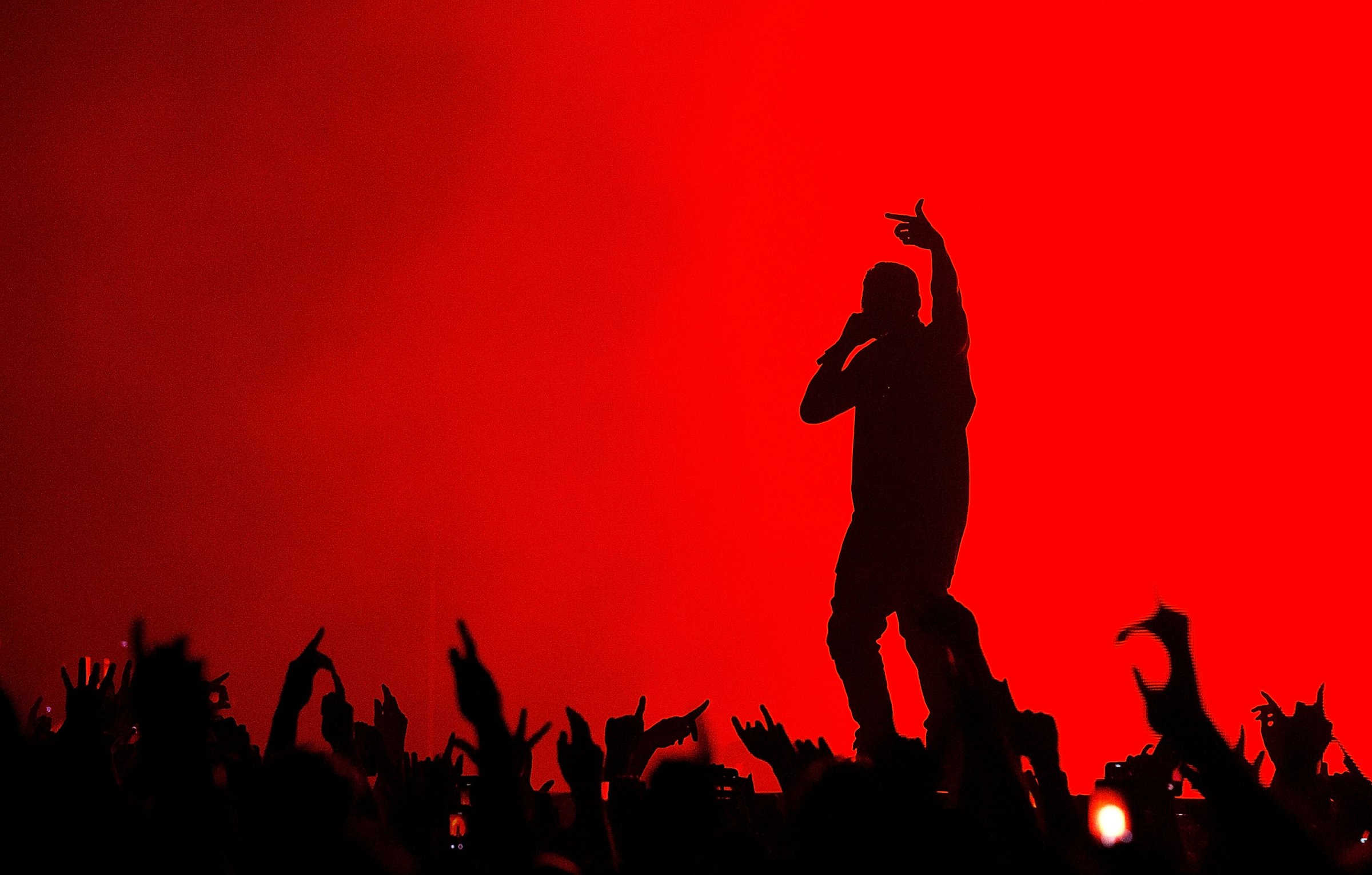
Memo to Kanye West: The “O” in “standing O” doesn’t stand just for ovation; it also stands for optional. That’s worth remembering the next time you insist that your entire audience—every single one of them—stand up before you’ll even begin a song, especially if, as is often the case, there are people in that same audience who, you know, can’t stand up.
Precisely that unseemly scene played out over the weekend in Sydney, Australia, when West stopped his show and informed the crowd—who had, as is the custom, paid money to see him perform—that, “I decided I can’t do this song, I can’t do the rest of the show until everybody stands up.” There would, he allowed, be exceptions: “Unless you got a handicap pass and you get special parking and sh*t.”
So everyone stood up, except for two people who, as it turned out, did have “special parking and sh*t.” One was in a wheelchair; the other had a prosthetic limb, which initially did not stop the crowd from booing them and chanting, “Stand up, stand up, stand up,” as West egged them on. “This is the longest I’ve had to wait to do a song,” he griped. “It’s unbelievable!”
Finally, the woman removed her prosthesis and waved it over her head and West polled the people around the wheelchair-bound man: “Now if he is in a wheelchair, that’s fine. He in a wheelchair, there? Only if he’s in a wheelchair.” At last, the fabulously rich entertainer agreed to perform for the disabled audience members.
Yes, there is cellphone camera footage of this; yes, West surely knew there would be. And no, he didn’t give a fig.
This is, as I write in my book The Narcissist Next Door, the same Kanye West who famously interrupted Taylor Swift’s acceptance speech at the 2009 MTV awards to announce that Beyonce should have won the award; the West who responded on his blog to the B+ score Entertainment Weekly had given one of his concerts with this blast: “What’s a B+ mean? I’m an extremist, its either pass or fail! A+ or F-! You know what, f**k you and the whole f*****g staff!” And the West who had this to say (in the third person, of course) about, well, Kanye West: “I think what Kanye West is going to mean is something similar to what Steve Jobs means. I am undoubtedly, you know, Steve of Internet, downtown, fashion, culture. Period. By a long jump.”
West is hardly the entertainment world’s only raging narcissist. Indeed, it’s an industry-wide affliction. Narcissism is measured by the Narcissistic Personality Inventory, a 40-question survey with a theoretical bottom score of 0 and high score of 40. But only a few points either way can make a difference. The average American weighs in at about 15.5, depending on age, gender and a few other variables. Inmates convicted of violent crimes score from 21.5 to 23. Celebrities don’t fall far shy of those stratospheric highs, coming in at 18.27, according to one study of 200 stars by pop psychologist Drew Pinsky.
But just which kind of celeb you are makes a difference. Reality show stars—no surprise—top the list at 19.45, followed by comedians at 18.89, actors at 18.45 and musicians at 16.67. That last, comparatively low figure makes sense because, as University of Georgia psychologist Keith Campbell told me, “If you’re a musician, you’ve got to play in a band.” Subsuming the individual into the group—the me into The Who, say—is not something the most florid narcissists would permit.
The musician rule is less applicable, of course, if you’re an individual performer like Miley Cyrus, Justin Bieber or West, because you are the sole—or at least central—star on the stage. West’s star was surely tarnished by his stunt in Sydney—judging at least by the Internet blowback it’s received. But will he care? No he won’t. Will he change? Not a bit. Audiences, of course, could respond on their own, choosing to remain seated—or better yet, not showing up at all. Even a narcissist would notice an empty hall—and, worse, an empty till.
More Must-Reads from TIME
- Cybersecurity Experts Are Sounding the Alarm on DOGE
- Meet the 2025 Women of the Year
- The Harsh Truth About Disability Inclusion
- Why Do More Young Adults Have Cancer?
- Colman Domingo Leads With Radical Love
- How to Get Better at Doing Things Alone
- Michelle Zauner Stares Down the Darkness
Write to Jeffrey Kluger at jeffrey.kluger@time.com